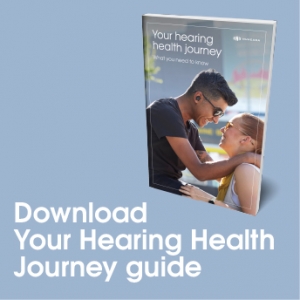
Musicians spend much of their time exposed to loud music. Therefore it makes sense that there are more musicians with hearing loss or tinnitus than you find in other occupations.
The amplified sounds produced by musicians during practices and performances further increase the risk of hearing loss or tinnitus. Several well-known musicians and movie stars struggle with one or both conditions. Before introducing them, it’s helpful for readers to know what these issues entail.
Understanding Tinnitus
Those with tinnitus often describe it as “ringing in the ears.” The sounds produced by tinnitus present in several ways, such as high-pitched hums or a dull roar.
Other sounds described by tinnitus sufferers include buzzing, hissing, roaring, or humming. No one else hears these sounds, which at times makes people at worry they’re hallucinating.
No matter what the exact sounds are, tinnitus varies in volume, strength, and pitch during the day. Sometimes the sounds are soft and easy to ignore. By contrast, other time it can be so deafening that the musician can’t focus on anything else.
Tinnitus is not a medical condition but rather a symptom of a hearing problem.
How Prolonged Exposure to Loud Music Can Damage Hearing
Experts say that prolonged exposure to noise above 85 decibels increases the risk of hearing loss. Noise on a typical city street is around the 85 decibel (db) threshold. Humans may feel pain in their eardrums once a sound exceeds 125db.
A typical rock concert creates sound at 115db, just 10 decibels below the pain threshold. This decibel level is on par with a jackhammer or ambulance siren.
Sadly, it takes just three minutes of sound exposure at 115db to damage hearing. The acoustics in some arenas bring sound all the way up to 140db. Therefore, those attending or performing at loud concerts should take action to protect their hearing.
According to a recent graphic by ProducerHive, musicians with 15 or more years of experience are four and a half times more likely to suffer from tinnitus. Click the image below to view the full graphic.
Musicians with Tinnitus or Using Hearing Aids
Here is just a partial list of musicians with tinnitus or hearing issues:
- Eric Clapton: The singer and guitarist has dealt with hearing loss since childhood. Clapton now regrets turning up his music so loud and failing to wear earplugs. He hopes that today’s young musicians can learn from his mistakes.
- Chris Martin: As a member of the band Coldplay, Martin developed tinnitus in 2002 from long term exposure to loud noise. However, he says the problem went away on its own after he started wearing earplugs.
- Ozzy Osbourne: The heavy metal artist played music at very high volumes for decades, and over time he began to suffer from tinnitus. Osborne no longer plays his music quite so loud.
- Barbra Streisand: The singer and actress first developed tinnitus at age nine. She’s lived with it for several decades by taking steps to prevent further damage.
- Neil Young: Young can trace the onset of his tinnitus to the 1991 recording of his album, Weld. He made his next album Harvest Moon much quieter and calmer.
Chris Martin tinnitus: Coldplay star reveals he has been suffering ear torment for years http://t.co/7DlH53mB via @MailOnline
— Amber Mealey (@AmberMealeyAuD) January 15, 2013
Tips for Musicians to Prevent Hearing Loss and Tinnitus
Even musicians who don’t have current hearing problems should get a hearing test to establish a baseline. The test results provide important data even in the early stages of hearing loss or tinnitus.
High frequency hearing loss issues often emerge first. So musicians should make sure their hearing exam tests sounds up to 20,000 hertz.
Here are some other steps to offset the impacts of constant loud noise exposure:
- Use equalizers and in-ear monitors when creating a mix in a studio. These tools allow enhance quiet frequencies and reduce the need to simply crank up the volume. These controls also enhance sounds potentially missed due to hearing loss.
- Wear earplugs designed for musicians that offer much greater protection than standard earplugs.
- Use white noise machines to muffle or soften sounds of tinnitus. Sounds like running water can also help.
- Anyone with hearing loss should wear hearing devices to boost missed sounds and enable tinnitus relief.
- Avoid other loud environments as much as possible.
Most musicians know their job comes with a risk of hearing damage. By taking pro-active measures, they can keep doing what they love without hurting one of their much-needed senses.
The Best Earbuds for Music Listeners and Musicians Alike
Loud music is a major risk factor for hearing loss. And earbuds are a major culprit when it comes to how loud music is blasted into your ears.
But why do people listen turn their earbuds up so loud? For some, it’s because they are trying to listen over the noise of a loud bus, airplane, or office space. Others might do it because they have hearing loss at certain frequencies, and turning up the volume is their only way to hear specific notes or instruments.
IQbuds2 MAX offer a unique solution to this common problem. For one, these wireless earbuds offer best-in-class active noise cancellation. This lets you block out the noise of the outside world so you can listen to your music at a more normal volume.
Another reason why MAX are the world’s best earbuds for music is the vast array of sound personalization the earbuds offer. Using the results of the five-minute Ear ID test built into the IQbuds app, the earbuds with auto-adjust to the user’s unique hearing profile. This lets musicians enhance weaker ranges in their hearing without turning up the volume so loud.
Finally, the sound quality of IQbuds2 MAX is superb. A large 9.2mm dynamic driver with vented acoustical design in each ear allows for a sound fidelity never before seen in a wireless earbud.




